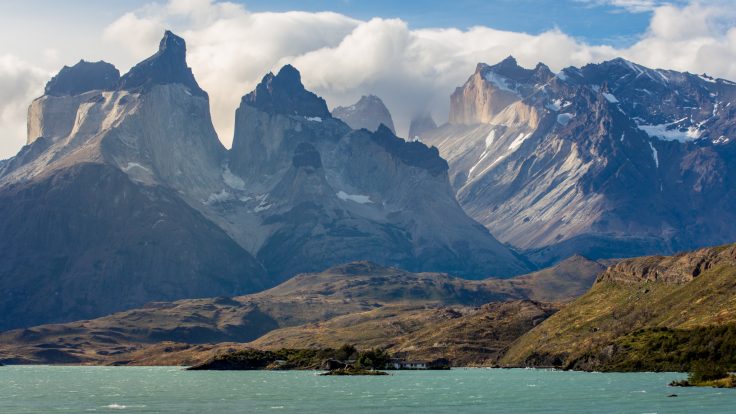Who are the Funhogs? The Funhogs were a group of men, now in their seventies and eighties who, many decades ago, spent their days roaming across the planet in search of adventure. Some of their names may be familiar to you. They include people like Yvon Chouinard, founder of the outdoor clothing manufacturer Patagonia; Doug Thompkins, founder of the outdoor equipment company The North Face; and others who are not as well known: Dick Dorworth, once a prominent skier, Chris Jones, and Lito Tejada-Flores.
The Funhogs are perhaps most famous for their epic 1968 driving journey from California to the tip of the Americas, where they successfully summited the formidable Fitz Roy in, of course, Patagonia. They reached the top on Christmas Day.
1968 is a long time ago, yet the Funhogs still look back on that year as one of the highlights of their lives. As Thompkins later wrote, "So I give thanks, as I look back, that fate played its mysterious hand guiding me along a wonderful path, in a life with never a single moment of regret. If I could play it over, I would let it go just as it has, with all the minor bumps that came with it. Just like those bumps along the last 900 miles from Bariloche to the Fitz Roy valley--sometimes a bit uncomfortable, but still very enjoyable all the way."
Thompkins's words surely underscore the joy and marvel of life, whose twists and turns he attributes to fate and its mysterious hand. Don't we all wonder why life goes the way it does? Do not we all occasionally sit back and ask ourselves how it is that we ended up where we are today?
Or maybe we do what the Funhogs did: as long as we are here, we ought to go ahead and embrace everything we can. After all, when it's over, it's over. If death is a blank wall, well, the Funhogs have done great. They've lived to the max. If death is otherwise, however, we wonder, too, yet in a different way: what does it mean?
The abyss between these positions is profoundly deep. It is in fact unbridgeable. It all comes to what we know and, significantly, what we believe about what we know. So we therefore ask, if Jesus, God in human flesh, has come, and every evidence indicates he did, what will we do about it? Everything, absolutely everything about us, our life, and our world, hinges on how we answer this question.
Thompkins's words surely underscore the joy and marvel of life, whose twists and turns he attributes to fate and its mysterious hand. Don't we all wonder why life goes the way it does? Do not we all occasionally sit back and ask ourselves how it is that we ended up where we are today?
Or maybe we do what the Funhogs did: as long as we are here, we ought to go ahead and embrace everything we can. After all, when it's over, it's over. If death is a blank wall, well, the Funhogs have done great. They've lived to the max. If death is otherwise, however, we wonder, too, yet in a different way: what does it mean?
The abyss between these positions is profoundly deep. It is in fact unbridgeable. It all comes to what we know and, significantly, what we believe about what we know. So we therefore ask, if Jesus, God in human flesh, has come, and every evidence indicates he did, what will we do about it? Everything, absolutely everything about us, our life, and our world, hinges on how we answer this question.
No comments:
Post a Comment